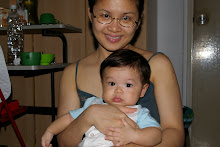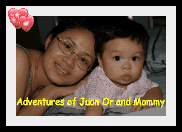3. 3rd speaker - Associate Professor Dr. Zalilah Mohd. Shariff (Head of the Dept. of Nutrition and Dietetics, Faculty of Medicine and Health Sciences, University Putra Malaysia, Malaysia) on "Parental Feeding Styles and Child Nutritional Status - What Do We Know?" Dr. Zalilah shared about how the development of young children's eating behaviour is mostly influenced by parents because parents are children's most immediate environment. And it is this environment provided by parents (i.e., the parental feeding styles) that may impact children's energy, nutrient intakes and consequently their weight. Research on parental feeding styles and their relation to children nutritional status can help in developing appropriate strategies to modify ineffective parental feeding styles and to promote more adaptive feeding styles. Some interesting points mentioned during her talk:
- How do parents influence their children's diet? They are through (i) availability and access to food; (ii) own eating style; (iii) food modelling; (iv) mealtime behaviour; (v) meal structure; (vi) nutrition knowledge; (vii) food socialization behaviour; and (viii) feeding practices.
- The 5 main classes of parental feeding practices are: (i) restriction i.e., limit child's intake or access to the food; (ii) pressure i.e., increase child's food intake; (iii) monitoring i.e., keep track of food consumed by child; (iv) emotional i.e., food given to comfort child; and (v) instrumental i.e., food given as reward.
- Parenting styles, however, can be classified into 5 types, according to Baumrind (1967, 1971): (i) authoritative (high in both control and warmth); (ii) authoritarian (high in control but low in warmth); (iii) permissive (low in control but high in warmth); (iv) indulgent (low in control but high in warmth); and (v) neglect (low in both control and warmth).
- Parenting actually has no direct correlation to children's weight. It is only through the genes that it is directly correlated.
- Galloway et al. (2006) found that children who received less pressure to eat would eat more when they are pressured, and that children tend to give negative responses when pressured to eat.
- Another study found that the more you restrict snack food, the more likely the child will eat it behind your back!
- Higher parental pressure to eat is more likely to result in food pickiness.
- Parental pressure to eat is inversely associated with child's weight (so does that explain why the more Mommy wants Juan Or to drink milk, the more underweight he becomes!?)
- Restrictive feeding is positively linked to child's weight.
- An observation on cultural difference in feeding practices: Aussie parents tend to be more restrictive than Hispanic and African American parents.
- There is no known differential feeding practices between boys and girls.
- Dr. Zalilah urged parents to not to focus on 'WHAT' to feed children, instead they should focus on 'HOW' to feed children.
- Although parents do their responsibilities by selecting and buying food , preparing and presenting food for their children in the best way possible and doing things like that, however, at the end of the day, it is still the child's responsibility to decide how much to eat and whether to eat or not! (Hint: so we as parents should not feel too disheartened or guilty when we have tried all we can to get our children to eat, yet in the end, they didn't eat! ^ ^)
Stay tuned for Part 5!




















.jpg)







































3 comments:
Very details one...
Agreed with the statement "Parental pressure to eat is inversely associated with child's weight", no one likes to be forced or being told what to do... especially little kids!
The more we gave pressure, the more they struggled and refused to succumb. Just go according to "flows", eventually they have to eat...
If Juan Juan didn't like chicken, I just offer her chicken frosts instead lar!
"chicken floss" :p
Post a Comment